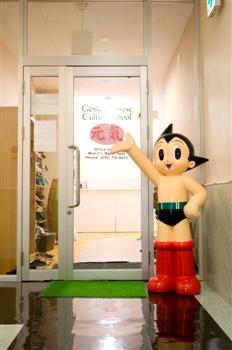|
The Japanese love to talk about the weather. I suppose when you have a country with such a diverse climate it’s hard not to. The beaches in Okinawa rival any tropical paradise, and snowy Hokkaido is a Mecca for skiers and snowboarders from around the world.
The seasons are very clearly separated in Japan. The Japanese are very proud of this fact and often ask foreigners whether they have 四季 (shiki, four seasons) in their own countries. In Fukuoka, winters (冬, fuyu) are generally mild with snow falling maybe once or twice a year. Spring (春, haru) is a great time of year to visit as the temperatures get warmer and the 桜 (sakura, cherry blossom) start to bloom. Then, the 梅雨 (tsuyu, rainy season) hits in late May/early June bringing a month of rain and sweat. Summers (夏, natsu) are hot with high humidity and air-conditioning is a must! Finally, autumn (秋, aki), with it’s 紅葉 (kouyou, leaves changing colour), is a great time to experience outdoor Japan.
The continually changing seasons are always a topic of conversation. When writing letters, it is standard practice to add a weather-related comment at the very beginning of the letter, even if it’s an impersonal mass mailing from a company to its customers! The Japanese version of Microsoft Word has a function to automatically insert the relevant phrase, by just selecting the season and the current weather:
This inserts a super-polite phrase like this one into your document:
菊花の候、貴社ますますご盛栄のこととお喜び申し上げます。平素は格別のご高配を賜り、厚くお礼申し上げます。
Having recently come back to Japan from a trip to the UK, I was barraged with the usual questions about my home country. The first of which wasn’t “Did you have a good time?” or “Where did you visit?” but always, “Was the weather cold?”!!

